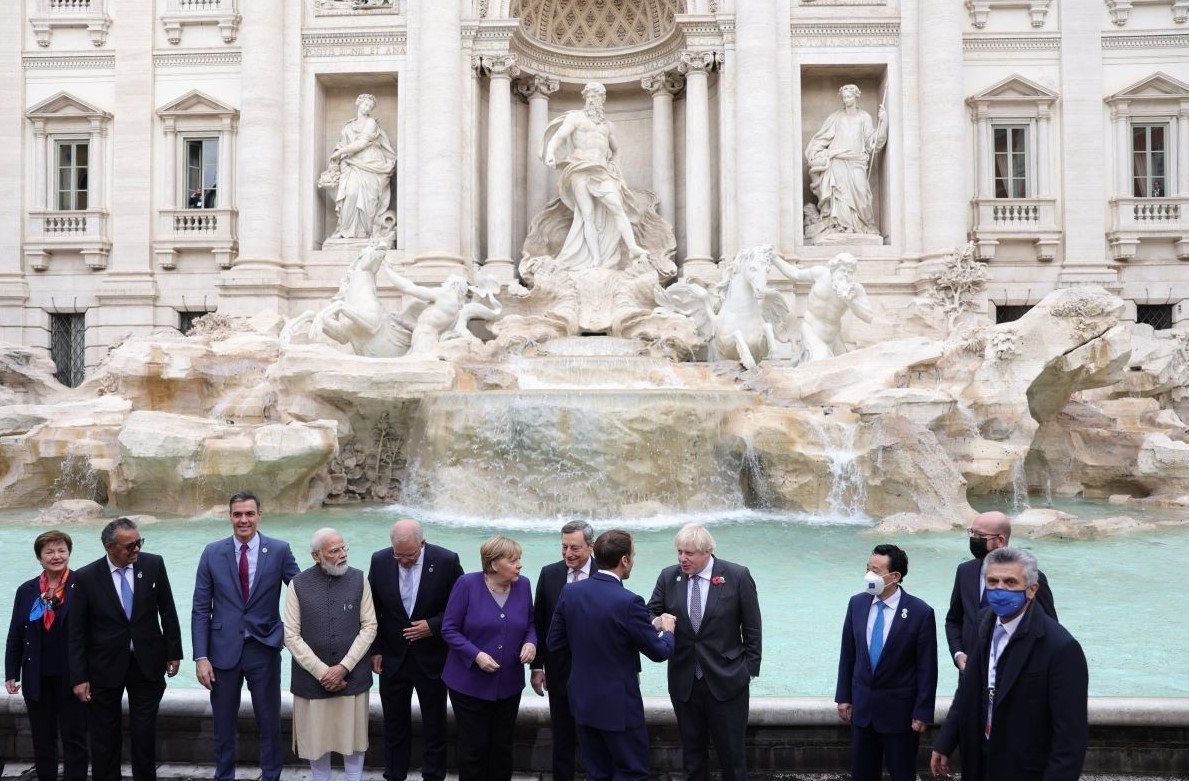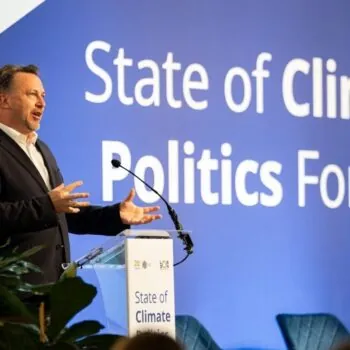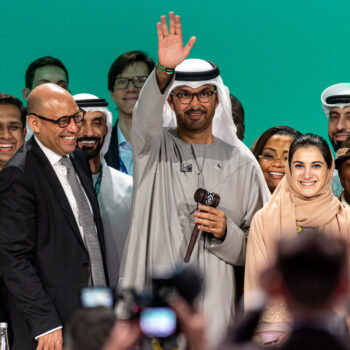G20 Leaders have struck a deal on climate, signalling their common goal to restrict temperature rise to 1.5C and acknowledging that “keeping 1.5 within reach requires actions and commitments by all countries”. Overall, the deal adds momentum to calls to accelerate climate action, as Leaders travel to Glasgow to pump political fuel into the COP26 talks. Leaders must now convert this political promise into an agreed process.
E3G set four tests for G20 Leaders before the summit – 1. mobilising finance and access to vaccines, 2. unlocking trillions in financial firepower 3. spurring faster decarbonisation as needed to limit temperature rises to 1.5C, and 4. generating new signals and commitments on coal phase out and elimination of fossil fuel subsidies.
On vaccines, Leaders tasked their Health Ministers to boost supply vaccines for developing countries and remove supply and financing constraints, but largely endorsed existing commitments around vaccinating 70% of the global population by the middle of next year.
Their best delivery was on faster decarbonisation, where they committed to taking further action in the 2020s, including enhancing their 2030 climate plans, known as NDCs. They didn’t make new progress on long-term targets, agreeing only on the importance of hitting net zero “by or around mid-century”, but the short term acceleration signal was hard-fought over a year of G20 negotiations. It’s a positive sign for the COP26 Summit to have G20 consensus, despite geopolitical tensions.
Leaders did agree to end international coal finance this year, following the G7, South Korea, Japan, China, and OECD, but they made no new progress phasing out fossil fuel subsidies.
The details on timelines and specific actions to deliver on the promise of faster action in the 2020s were sparse, including on coal and energy system transformation. Leaders did agree to end international coal finance this year, following the G7, South Korea, Japan, China, and OECD, but they made no new progress phasing out fossil fuel subsidies.
They also agreed on providing support for the transition from coal. In the post-Summit press briefing, Italian PM Draghi suggested that China and India were more willing to move on domestic coal phase out timelines. The G20 now recognises that emission reductions in the energy sector must be accelerated in line with timeframes required by the Paris Agreement, which means the phasing out domestic coal by 2030 for OECD countries and 2040 for non-OECD countries such as China and India. The decarbonisation baton is now passed to Leaders at COP26 to fill in the gaps on transitioning their energy sectors and more.
On mobilising finance, while G20 leaders agreed on accelerating action beyond emissions cuts – for example on scaling up adaption finance and addressing issues of access to climate finance – they gave little by way of details or timelines. The G20 made little movement on supporting vulnerable and developing countries and their wider needs to finance COVID recovery and climate change. The donor commitment to mobilize $100 billion will be surpassed only in 2023 and barely met on average over a multi-year period. The – recycling of International Monetary Fund Special Drawing Rights – has yet to be fully delivered.
The G20 made little movement on supporting vulnerable and developing countries and their wider needs to finance COVID recovery and climate change. The donor commitment to mobilize $100 billion will be surpassed only in 2023 and barely met on average over a multi-year period.
It’s clear that climate finance became one of the main blockers of further climate ambition at the conference. G20 leaders mounted a last-minute push, ordering MDBs to gear up their role in the transition. According to the communique, better risk-sharing between public resources and private investments will be key to channel capital into the energy transition in markets, which investors usually deem too risky. It calls for Multilateral Development Banks to develop new strategies for how private finance can be mobilized in a manner that is consistent with the ambition to keep 1.5 degrees within reach. There are potentially trillions of dollars available in private capital looking for sustainable investment opportunities. Unlocking them for countries where investments needs are greatest is set to become a key issue at COP26 and into 2022.
Leaders also did not expand on their Venice Agenda on finance system transformation. On a positive note for next year’s priorities, the communique does signal that G20 Leaders agree on the importance of systemic analysis of macroeconomic risks from climate change and the need for a wider range of fiscal, market and regulatory tools, beyond just carbon pricing. Although few specifics have been agreed, this points towards a broad, forward-looking agenda for finance and macroeconomic system transformation through next year’s G20.



